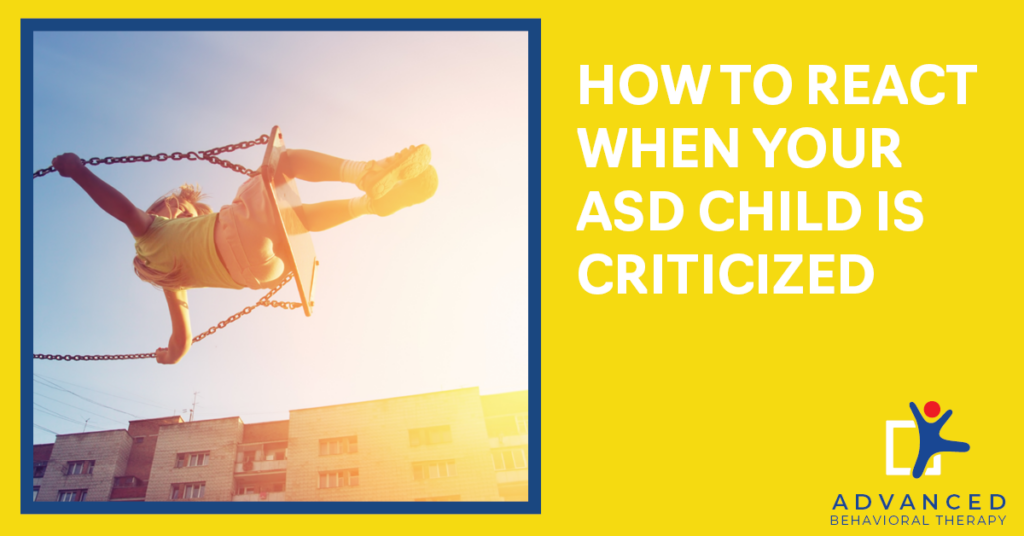
暖かくなるにつれて、公園を訪れたり、野外活動をしたりする機会が増えるだろう。しかし、神経発散型の子どもを持つ親にとって、この屋外への移動はまったく新しい課題をもたらす。神経発散型の子供について知っておくべき重要なことは、多様であるということである。ほとんどの親が人前での子育て(食料品店の真ん中でのメルトダウンを考えてみてください)に苦労している一方で、ASDの子どもを持つ親は、自分の子どもが外からは神経型に見えるかもしれないが、実際はそうではないというさらなる課題を抱えている。このような子どもたちは、単にそうすることができなくなるまで、「普通」に見え、「普通」に振る舞っている。
によると 障害者の世界人口の約10%が、目に見えない、あるいは隠れた障害を持っている。春の社会的な側面は、より多くの人々があなたの子供を見て、反応し、残念ながら判断することを意味します。隠れASDの子どもを持つ親にとって、このことは、人前で子どもを叱りすぎる原因になります。しかし、このような子どもたちにとって、彼らの行動はしつけの問題ではなく、むしろ神経学的な現実のために、彼らがどのように世界に対処し、対処するかということなのです。
ASDの子どもにとって、外出は多くの困難をもたらす可能性がある。感覚処理障害、不安、明るい光や大きな音に対する過敏性などがあり、これらはすべて子どもの行動に影響する。さらに、ASDの子どもはかんしゃくを起こしやすく、一般的に神経定型の子どもよりもメルトダウンが長く続く。さらに、神経発散型の子どもは、神経定型型の子どもよりも成熟していないことがある。そのため、ある年齢では神経型の子どもにとって不適切な行動であっても、同じ年齢のASDの子どもにとってはまったく受け入れられることがある。
このような隠れた障害に対する認識不足は、公共交通機関のマスク着用義務化により、ASD児を持つ多くの親が飛行機搭乗中に経験した最近の問題でますます明らかになっている。ASDの子どもは、目に見える障害がなければマスクの着用が免除されることが多かったが、多くの親は、ASDの子どもにとって非常に困難なことであるマスクを子どもに着用させなかったことで叱責を受けた。
では、隠された診断を受けた子供を持つ親は、怒りに満ちた視線や非難めいたささやき(あるいは、まったく勝手で無礼なアドバイス)を向けられたとき、どうすればいいのだろうか?
#1- 子どもの診断について率直に話す
残念なことに、ASDの診断にはまだ汚名がつきまとうため、子どもの診断を他人に知らせない親が多い。しかし、子供の診断を秘密にしておくことは、あなたにとっても子供にとっても不利益なことです。子供の現実を受け入れることができれば、子供が真に成長するための手段を与えることができます。友人や家族(時には判断力のない見知らぬ人)にも子どもの診断を伝えることで、子どもとの状況を正しく扱うことができるようになります。
あなたの子どもが、その環境、年齢、あるいは同世代の子どもたちに対して行儀が悪いと感じる人に直面したら、あなたの子どもがASDであることを穏やかに説明しましょう。あなたのお子さんが、外見はそのお子さんと似ているかもしれないことを説明してください。しかし、診断の結果、同じように世界と接することはできません。
#2 - 相手の反応は悪意ではなく無知からくるものだと気づく
たいていの人は意地悪なのではなく、ASDやASDがとりうるさまざまな形態について、単に知識がないだけなのです。このことを理解することで、恥ずかしがったり怒ったりすることなく、状況に対処することができます。あなたのお子さんはASDですが、これは恥ずかしいことではありません。ASDやそれに伴う行動は、決してあなたの育児スキルを反映するものではありません。メルトダウンやその他の行動の問題は、予測不可能でコントロールできないこともありますが、あなたの子どもの状態について、知らない傍観者を教育することは可能です。そこで次のポイントだ。
#3 - 教育の機会を利用する
お子さんの診断を説明することで、この世界に無教養で不寛容な人を一人でも減らすことができれば幸いです。その人たちは、他の子どものメルトダウンや癇癪を目の当たりにして、力強く反応し、その親を助けようと申し出るかもしれないし、診断が隠されているかもしれない子どもへの適切な対応方法について、他の人を教育することさえできる。
ASDのお子さんを育てて得た知識を持つあなたは、ASDについてより深く学ぶための最良の情報源です。ですから、彼らの質問(それがどんなに無神経に見えても)に腹を立てず、その質問を彼らにASDの人への対応や接し方を教える機会としてとらえましょう。
もしあなたが野心的であれば、ASDについてより多くの情報を得るために、混乱している傍観者たちが訪れることのできるリソースへのリンクが書かれた名刺を作成することもできる。
#4 ベイビーステップを踏む
そもそもメルトダウンを避ける最善の方法は、メルトダウンを引き起こす可能性のある感覚過敏やその他の誘因に対して、子どもを鈍感にすることに取り組むことだ。まず、これから行く遊び場や公園の写真を見せることから始めましょう。続いて、車でその公園を通り過ぎることで、車窓の安全性を確保しながら公園を体験させ、過度な体験から引き離す。
お子さんの準備が整ったと感じたら、前もって計画を立てましょう。決まった時間に公園へ行くことを伝え、日課のどの部分の後に行くかを指定し、いつ行くかを正確に把握させる。
公園があまり混雑していない時間帯に行くようにし、最初は短い時間から始め、徐々に滞在時間を長くしていく。また、公園にいる間、お子さんのお気に入りの安らぎグッズやおもちゃを持っていくのもいいでしょう。
子どもの感覚的な場所を認識し、遊び場ではその場所を避ける。
#5 - 自分がベストを尽くしていることを忘れるな
必然的に、あなたの子供はメルトダウンを起こす。そうでない子どもはいない。そして必然的に、批判や否定的な反応をする人が現れる。いつもそうでしょう?あなた自身やお子さんをどう見るか、決して他人の目を気にしないでください。挫折よりも子供の進歩に焦点を当て、特別な子供と家族のために最善を尽くしていることを認めてください。自分の素晴らしい子供と、その子供を育てているあなたの素晴らしい仕事に誇りを持ち、不当な批判に直面しても耐え忍びましょう。
だから、外に出て、美しい春の気候を楽しみ、ASDの子供を持つことで、世界全体と交流することを止めないでほしい。









